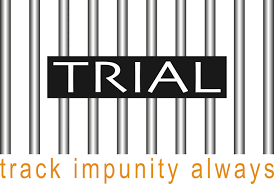
25.06.2015.
A major victory for wartime victims in BiH
TRIAL: Groundbreaking Court decision paves the way for wartime victims to get compensation
24.06.15
Sarajevo – After several years of legal battle, the Court of Bosnia and Herzegovina sentenced several soldiers of the Republika Srpksa Army (VRS) to 10 years each in prison for war crime. Bosiljko and Ostoja Markovic; were found guilty for rapes committed in Kotor Varoš district against a woman of Croatian nationality in June 1992. For the very first time in BiH history of criminal proceedings, the Court also decided to provide a victim of war crimes with damage compensation, by subjecting the accused to a 26,500KM fine. TRIAL, the NGO that provided legal help to the victim, welcomes this landmark sentence, that paves the way towards justice for thousands of wartime survivors claiming for their rights.
In BiH, not a single wartime victim has ever obtained compensation through criminal proceedings for the harm suffered, despite their right to it. This unjust situation is mainly due to the fact that until now, courts and prosecutors have always redirected victims to civil procedures, instead of addressing their case in criminal proceedings, according to the existing legal foundations. As a consequence, most of the survivors – who do not receive any legal aid from the State – simply renounce to their fundamental right to compensation, as civil procedures imply revealing their often protected identity and produce additional costs that many victims are unable to pay. This is why today’s decision is a major victory for wartime victims in BiH: it will put additional pressure on prosecutors and courts to implement the already existing legal provisions. More importantly, it will pave the way towards justice for thousands of victims who are still waiting to see their human rights guaranteed within criminal proceedings.
“Money will not erase the pain caused by the perpetrators, but it is nevertheless a very important day for the victim. For her, justice has been fully served: she has both won her right to justice and compensation, and felt satisfaction through experiencing public recognition for her suffering. This verdict is of key importance for other victims of war crimes in BiH and the region: they can now hope for adjustments in legal practice that would compensate them while bringing criminals to justice”, said Adrijana Hanušić, TRIAL’s legal adviser in BiH.
Ana B. (assumed name) was raped on 28 June 1992, when she was still a minor. Immediately after, she got the courage to file a complaint before the Kotor Varoš police. Her and her family’s depositions allowed clear identification of the perpetrators, but no criminal proceeding was ever initiated by the Banja Luka district Prosecution office. She turned to TRIAL in 2012 for legal help. The NGO did its utmost to guarantee Ana B.’s right to justice and access to full information about her case. The NGO provided her with legal support, coordinated with other organizations to offer her psychological support and pushed legal institutions to take action. Two years later, a Court indictment against two individuals was finally confirmed. TRIAL hired a lawyer to defend her right to compensation for the trauma she suffered. At the end of 2014, Ana B. testified before the Court as a victim in the case “Ostoja and Bosiljko Marković”.
Today, TRIAL welcomes the Court’s decision, but also urges institutions, courts and prosecutors to enable access to justice for the victims by enforcing the already established legal provisions, by protecting the victims from any re-traumatization and by helping them avoid additional costs in civil proceedings. “Not only perpetrators but also victims have the right to free legal aid and it is an obligation of the State to ensure human right for all”, concluded Ms Hanušić.
Published on TRIAL, 24.06.2015















